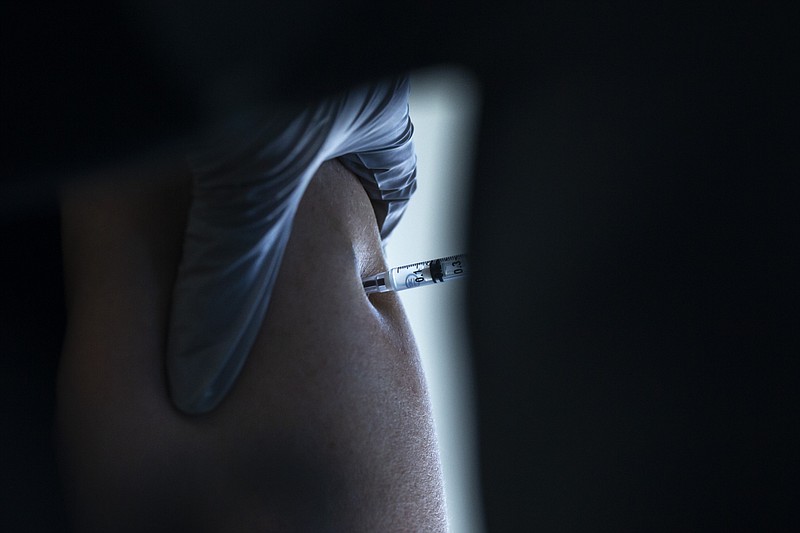With federal approval, Gov. Mike Parson's administration issued an emergency rule early last week, allowing pharmacy technicians to administer COVID-19 vaccinations when supervised by a licensed pharmacist.
The move eased restrictions pharmacies face as they prepare to begin administering the vaccinations to hundreds of thousands of residents of nursing facilities, among the first recipients of the vaccine.
CVS and Walgreens pharmacies agreed with the federal government early on to distribute the vaccines in nursing facilities across the country, according to Ron Fitzwater, chief executive officer of the Missouri Pharmacy Association.
But that doesn't take into account the need to provide vaccinations to elderly folks who don't live in nursing facilities.
The COVID-19 virus has been especially deadly for the elderly and people with underlying health conditions.
The state Department of Health and Senior Services outlines its plan for distribution of the vaccine at covidvaccine.mo.gov.
Phase 1A of the plan, which is still underway, calls for vaccinations of long-term-care facility residents and staff and "patient-facing" health care workers (those who may have direct or indirect exposure to the virus and are unable to work from home).
Phase 1B includes those elderly residents who are anxiously awaiting the vaccine's arrival. The phase will be made up of high-risk individuals (ages 18-64 with an underlying health condition) and people 65 and older, first responders and essential workers, such as teachers and education staff, water and wastewater workers, energy workers, critical manufacturing workers, and food and agriculture workers.
Getting the vaccine to these folks will be more challenging because they can't be found at single locations.
"A lot of those details are being worked out right now," Fitzwater said. "We are working very closely with the state on the procedures and what's going to happen."
DHSS Director Randall Williams said on Thursday the state is working to assure when vaccines are available, people may receive them through their health care providers.
"At that time, we should have enough providers who are getting the vaccine shipped directly to them," Williams said.
Passage of the emergency rule means medical students, nursing students, emergency medical personal, pharmacy techs and others will be able to administer the vaccines. They'll just have to be trained and/or certified by the licensing boards that oversee them, he said.
"We're trying to look down the road because we realize we want to have as many sites and people available (to administer vaccines)," Williams said. "When the vaccine is available, we will get it into the hands of the providers."
The pharmacy association is participating in bi-weekly calls with federal, state and local officials have been helpful in keeping the massive program to provide immunizations for the elderly on track, Fitzwater said.
There have been hiccups to developing the program to get everybody in as quickly as possible, he said, but those are to be expected.
"The takeaway from bi-weekly calls is we are creating these things as we go. Some haven't been worked out yet," Fitzwater said. "As we get closer to being able to administer the vaccines, there will be opportunities for patients."
It is uncertain whether pharmacies will host drive-thru vaccinations or other opportunities for seniors to receive vaccinations, but pharmacies will be part of the distribution, he said.
Now that two vaccines (one each manufactured by Pfizer and Moderna) are available for Phase 1A, some people are hesitant to take it, Fitzwater said.
According to the DHSS website, the vaccines have been tested on tens of thousands of people and have passed safety requirements. Additionally, an external board made up of medical and research professionals using additional public health data has reviewed final COVID-19 vaccine data and recommended the vaccines be made available for emergency use.
"We are going to do everything we can," Fitzwater said, "to make sure patients have the ability to receive vaccines."

